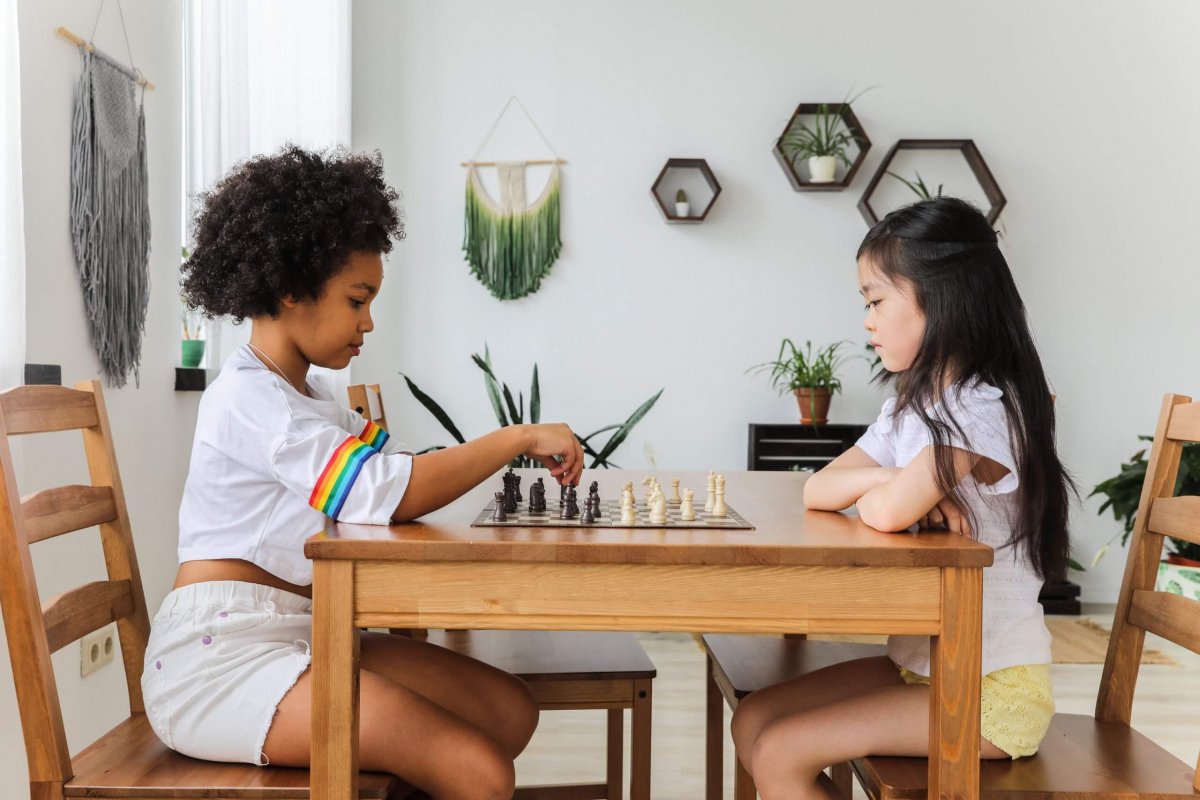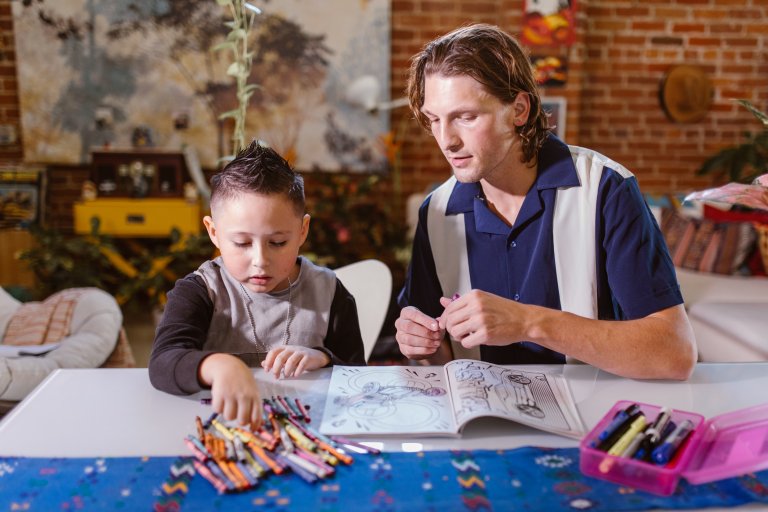
27 Oct How Do Kids Learn Through Playing?

A child’s early growth is greatly influenced by play. Playing supports young children’s brain development as well as the development of their language and communication skills. Through play, children grow physically, learn a variety of emotional skills, and build their ability to think critically about the outside world.
As a parent, you certainly enjoy seeing your child play. It’s amazing to learn about the new worlds they build and to hear about their conceptions. It’s entertaining to observe their creativity as they utilize their imaginations to explore the world around them.
What Does "Learning Through Play" Entail?

Play is an essential part of a child’s development. Playing simple games like peek-a-boo, building blocks, or singing a song is much more significant than just passing the time. They support young children in learning how to communicate, improve their motor skills, and solve problems.
These preschool games are essential for creating the groundwork for formal education. In most instances, interacting with, playing with, and responding to the kid is where learning through play begins for parents or other guardians.
The Advantages of Play

Playing has many advantages, including how it fosters children’s social, physical, emotional, and cognitive growth. However, play is about more than just having fun. Play is crucial because it offers a fundamental basis for learning, discovering, solving problems, and gaining knowledge of the world and your place in it.
Children can practice skills and imitate what they see while playing. Play helps kids learn how to get along and communicate with others and provides an outlet for their creativity and exploration.
1. Physical Advantages
Play improves kids physically in a number of ways, particularly in the growth of their gross and fine motor skills. Play enhances motor development by supporting stability and agility, fostering motor planning abilities, and encouraging movement awareness of spatial linkages.
It also promotes the development of gross motor abilities like strength, endurance, and body awareness. Jumping, running, swimming, riding bikes, dancing, and climbing are a few instances of physical play.
2. Cognitive Advantages
Critical thinking abilities and healthy development are encouraged through play. It improves memory, aids in the understanding of cause and effect, and aids in the exploration of the world and one’s place in it.
Play is an excellent way for young children to understand how objects fit together. It enables them to engage their senses and promotes curiosity and investigation, which are the abilities that lay the groundwork for intellectual growth and cognitive processing.
Children are encouraged to pretend, build, and invent via play. Children can envision, brainstorm, and practice critical thinking abilities through imaginative, open-ended play.
3. Emotional Advantages
Play also aids children in comprehending and managing their emotions. Children use play to process their feelings and new ideas. For instance, a child learns to cope with despair, rage, and grief when they lose a game. Playing also promotes confidence-building and the growth of a person’s individuality and self-esteem.
4. Social Advantages
Play is essential for social development since it teaches kids how to interact with others. Children learn about social norms and expectations through play, allowing them to communicate, listen, and come to compromises.
Tips For Effective Play-Based Learning
Give Support
By supporting your child in challenging situations, such as having trouble integrating into groups, you can prepare them for success in learning via play.
Together, work through these difficulties by stepping in only when it’s essential, talking about your child’s emotions, and offering advice on handling situations properly in the future, including offering to share.
Express Your Interest
Demonstrating genuine interest in your child’s play activities is an excellent strategy to promote more beneficial play experiences. Your child will know that you are interested in and appreciate their play attempts if you talk to them about their preferred forms of play, ask about them, and participate when they ask you to.
Conclusion
Play-based learning is a crucial component of your child’s skill development and can foster imagination and creativity in addition to academic learning. So, indulge your kids in jogging, singing, and dancing. Have fun playing games with your kids!


